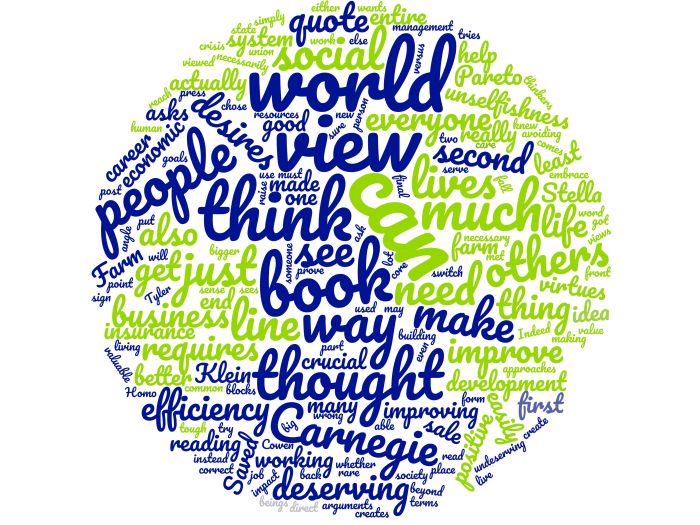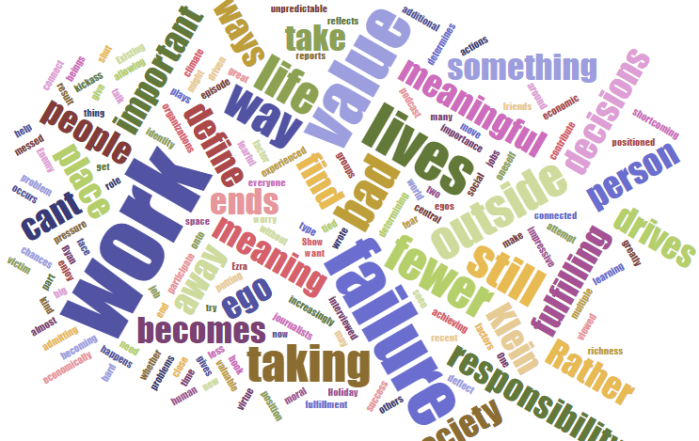I used to listen to the Ezra Klein show on a regular basis, and Klein was frequently critical of the idea of equality of opportunity. In our country, the idea of equality of outcomes is looked down upon, but the idea of equality of opportunity is praised. However, Klein argued that equality of opportunity was actually a much more difficult and radical idea to achieve than equality of outcome. When you really consider all the advantages the children of millionaires or billionaires have over middle class children, and the subsequent advantages those children have over children raised in poverty, you can see that equality of opportunity is little more than a myth.
This idea is reflected in Yuval Noah Harari’s book Sapiens: A Brief History of Humankind. Harari writes, “most abilities have to be nurtured and developed. Even if somebody is born with a particular talent, that talent will usually remain latent if it is not fostered, honed and exercised. Not all people get the same chance to cultivate and refine their abilities.”
Our country believes that everyone can pull themselves up by their boot-straps, but the reality is that we almost all need someone outside of ourselves to help encourage us, coach us, and aid us in developing our skills, even if we are born with a natural talent. As I write this, I am reminded of two Star Wars books I recently listened to through Audible. In Star Wars: Ahsoka, the titular character explains to the parent of a force-sensitive child that if the child is not brought up by a Jedi and her force abilities are not nurtured, then they will eventually fade away. The force, and the ability to tap into the force, in Star Wars is a god-like power, but even those born with a special proclivity toward the force will lose that power if not properly trained. The child in the book, born on a planet on the outskirts of the major center of the galaxy, was not likely to have a chance to harness and maximize her force powers. She did not have the same opportunity to develop her natural talent as the Jedi Ahsoka did.
In another Star Wars title, Thrawn by Timothy Zahn, the titular character Thrawn meets a young cadet named Eli Vanto who is exceptionally skilled with data and strategic analysis, but who is also from a planet on the outskirts of the galaxy. Despite his exceptional skill, his rural and low status upbringing slotted him into a relatively minor career path within the Galactic Empire. Thrawn recognizes his talent by chance and continually encourages and challenges Eli to maximize his abilities (often against Eli’s own desires). In the end, Eli raises to a military rank he never expected, and while his own talent played a huge role, it was largely thanks to Thrawn that Eli had the opportunities to maximize his abilities.
The two Star Wars novels may be fiction, but they reflect a reality in our society that we are all aware of, but prefer not to think about. Instead of acknowledging that our talent needs to be cultivated, and that cultivation and the opening of doors often has to come from beyond ourselves, we imagine that we can get where we want through hard work and determination alone. Those are certainly important character traits, and can be seen clearly in the story of Eli Vanto, but alone they don’t mean that we are really going to maximize our potential.
In Sapiens, Harari continues, “even if people belonging to different classes develop exactly the same abilities, they are unlikely to enjoy equal success because they will have to play the game by different rules.” We like to believe that talent, hard work, and grit are all one needs to succeed to the greatest extent possible, but where we are born, who we know, and the opportunities that our birth, appearance, and upbringing provide can overwhelm the advantages that talent, hard work, and grit give us. Equality of opportunity is a myth, because we are playing different games by different rules, and because we all rely on assistance from outside of ourselves to get to where we want to be. For some, that assistance comes more easily than for others, and for some there are exceptional hurdles that make it difficult to get onto a path toward great success.








